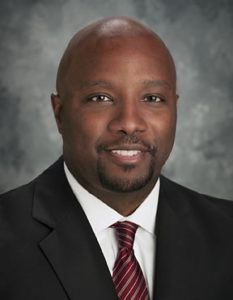
Andrew Wells
Director, Workforce Development Center
The Chicago Urban League’s Workforce Development Center provides job training and placement services to nearly 2,000 Chicago-area residents each year. In 2018, more than 1,200 adults and youth secured employment after our training and an additional 796 received jobs through League-hosted hiring events with area employers.
By now, it’s an old story. While unemployment across the nation and here in Chicago is near historic lows, the Black unemployment rate continues to be roughly twice that of the general population. But here’s what might be news to some: While unemployment is about 3.7% citywide, in some predominately Black neighborhoods on the South and West sides, it tops 30% and higher.
This startling difference perpetuates the notion of two Chicagos—one filled with opportunities, affluence and amenities for some residents and the other marked by scarcity, limited options and a dearth of resources for the less fortunate.
Each week, hundreds of job seekers walk through our doors looking for an opening to join that other Chicago. They face multiple barriers to employment, including lack of transportation or child care. However, the most common obstacle we see is limited education—and not just in core skills like math, which we address with tutoring. The majority of our clients simply are unaware of, and unprepared for, changing trends in the labor market.
To seriously tackle this lack of knowledge, two things are required:
- Exposure to emerging careers. Three of the fastest growing areas for jobs are technology, clean energy, and healthcare and many opportunities in those fields do not require a college degree. Since April 2018, the Workforce Development Center has trained and certified 35 Chicago residents for solar energy jobs. Many of our clients tell us they had no idea these jobs existed before they saw our flyer. They didn’t learn about them in school, and they don’t see them in their communities. To prepare the workforce of tomorrow, businesses must partner with schools and community organizations to increase exposure to emerging careers. Elementary school students should be as familiar with smart grid engineers as they are with bus drivers.
- Increased commitment from employers. We train more than 1,000 people for jobs annually, and we reach out to dozens of companies that we know are hiring. Many Chicago employers have been strong partners, but too often we encounter companies that tout a commitment to diversity but politely decline to consider our clients. The tech sector is particularly challenging. The startling inequity in employment for Chicago’s Black residents will not change without serious commitment and effort from employers.
